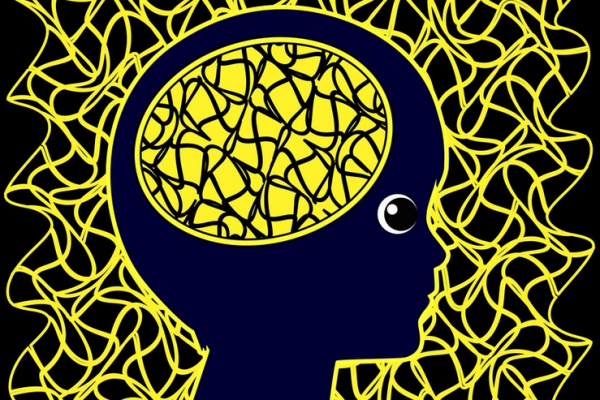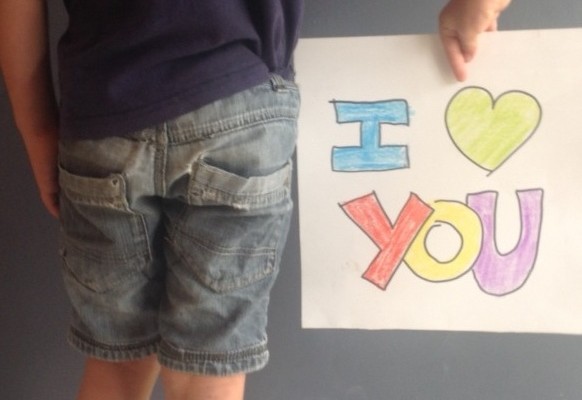
Two Secrets of Parenting
Last week I got skunked. But all was not lost. I discovered ‘the two secrets of parenting’.
Skunked refers to the surfer’s frustration of carving out a rare gap in your super-busy, responsibility-laden week in the hope of finding some glassy waves, only to find unsurfable drivel.
I wasn’t skunked alone. A buddy (of 25 years) was at the beach too. After griping about the surf, we turned onto more meaningful topics. First, politics. Trump vs Clinton, blah blah blah. Then an autobiography about a life of surfing we both have read, and loved. Then – and it’s amazing how seldom us dads talk about this – parenting.
He brought up the subject like this: I’ve been reading a lot about parenting lately. And I think I’ve discovered the two secrets to it.
Yeah sure, I thought. I’ve read a lot about parenting too. Every author claims to have found the silver bullet to parenting. Yet, each book spouts forth a unique ‘secret’. I conclude there is no singular secret to parenting.
That said, if I was forced to suggest a silver bullet, I’d say that parenting must aim at long-term not short-term happiness in your child. Happiness in childhood is not always a predictor that one will thrive as an adult. Too many of us parents spend our lives trying to prepare the road for our child, rather than prepare our child for the road. We eliminate and deal with problems for them. We shield them from hardships. They’re happier now for it, but under equipped for life’s later challenges. The goal of parenting should not be – as most parents think it is – to give our kids a happy childhood. Much better to give them a happy life.
Turns out this often-overlooked concept underpinned my buddy’s two parenting epiphanies – although it wasn’t obvious at first.
The first secret is unconditional love, he opined.
The importance of real love seemed obvious enough, and I believe that far fewer of us parents get this right than we think, but I was curious why he thought it was a secret to parenting. His answer reached into their future as teenagers and adults…
Because life in schools and society keeps on telling you that you are not okay. Every time you fail, every time you don’t fit in, the message that will reach you is that you are not okay.
And as long as we parents tether our children’s sense of worthiness to conditions such as the approval of others, or to their achievement, we do them the greatest disservice.
A sense of worthiness should never be up for grabs. Worthiness is a given. It is what we take into all our friendships and work. And no amount of failure to jump through society’s hoops should ever be able to jeapordize it. Sure, rejection and failure will knock them down like they knock all of us down, but a resilient sense of worthiness will help them to get up again.
The guy’s rationale was flawless. I agreed with him totally. Society and peer pressure play us like puppets. When we comply and conform we enjoy plaudits and approval. When we don’t, disapproval and sometimes outright rejection is our lot. The way to help our kids avoid decades of approval-addiction is to bestow on them this kind of unconditional worthiness – especially in their most formative years when they are still wet cement.
I also remembered something I had heard Social Scientist and Ted-talk phenom, Brene Brown say: My research revealed that the greatest predictor to success in relationships is that people feel worthy of love and belonging. This worthiness is something parents are uniquely poised to grant.
With his first secret articulated, he now had my interest. What’s the other secret? I asked.
The second secret is chores, he pontificated.
After hearing his mention of unconditional love, I must admit this point seemed immediately trivial, a letdown.
I had read somewhere that about 3 in 4 today’s adults did chores as kids, but that only 1 in 4 kids are asked to do chores nowadays. And the main reasons are that we don’t want to feel like slave-drivers, and that we feel bad about putting more on our already school-pressurised children. If my buddy was right, we might be missing a serious trick. I leaned in with a curious Huh?
Think about the world of work. Who are the people who are the first to get fired? Or at least the last to be promoted? It’s people who don’t finish what they start. It’s unreliable and irresponsible people. People who don’t pull their weight. It’s takers.
I had to agree. I had just recently listened to Adam Grant on the subject at a conference. His research reveals that in companies, ‘takers’ rise quickly but eventually fall as they come under the judgment of many. In contrast, ‘givers’ tend to get ahead less quickly initially, but eventually tend to rise to the top.
And think about relationships: in our marriage and family – these things count even more. I know of marriages that have failed because one perceived the other to be a slacker, to not follow through, to not think about others. Many a dude will apply himself at work, but come and expect to be served by his spouse.
Of course we have to pull our weight, I agreed, but what’s that got to do with chores?
Everything! He shot back.
Giving our kids chores is precisely where they learn to do their part. It’s where they learn the default setting of giving and contributing. Taking and consuming come far more naturally, and parents must erode this selfish bent by creating a positive culture of everyone doing chores in the home.
Hang on, I interjected, don’t they learn this stuff at school? Kids nowadays work harder than ever.
I don’t think they do. At schools they learn to work hard, but they do so for personal advancement. Most people don’t mind working hard if they get applauded for it. Schools may try to develop character in kids, but they’re best at equipping little humans to perform, to achieve. Healthy sports teams may be an exception, but even in sports, we pull our weight so as to stay on the team. It’s still about me and my success.
He continued, Chores, on the other hand, are not about personal advancement. Chores should be expected, normal, without external reward. The reward is inherent, just feeling good about doing my part. Chores teach us how to think and act with a we-mindset rather than a me-mindset, making us givers not takers.
Then he paused. Long enough for me to reflect on my own parenting. Julie and I may be strong in unconditional love, but we are amongst the 3 in 4 parents who don’t routinely give our children chores. In light of this chance encounter, that will need to change. December school holidays might be a good time to figure out and implement some age-appropriate tasks to assign to our kids who are 3 and older.
Later, I explored whether empirical science validated his claims. It did. Marty Rossmann of the University of Mississippi used data collected over 25 years to discern whether asking children to help with household chores was instrumental in predicting the children’s success in their mid-20s. Chores, she determined, instilled in children the importance of contributing to their families and gave them a sense of empathy as adults. Those who had done chores as young children were more likely to be well-adjusted, have better relationships with friends and family and be more successful in their careers.
Musing over what he said, I realised that both these two ‘secrets’ have to do with preparing the child for the road, rather than the road for the child. Of course there’s so much more to parenting, but these 2 insights serve as two wings we give our children, setting them up to fly in the decades to come.
He wasn’t done yet. Like a good teacher, he concluded his double-punch sermonette by tying the two secrets together…
The second secret, learning to pull one’s weight through chores, reduces the likelihood of them being rejected and failing in work and relationships in the years to come.
On the other hand the first secret, unconditional love, enables our kids to withstand the disapproval, rejection and failure which, try as they might, will still come their way.
Then we both stood there, staring out at the sloppy surf for a few more minutes before heading back to our busy lives with our hair still dry. The Rolling Stones song (played tauntingly at Trump’s victory speech) described my seaside experience well: I didn’t get what I wanted, but I think I got what I need.
Comments
Also published on Medium.




